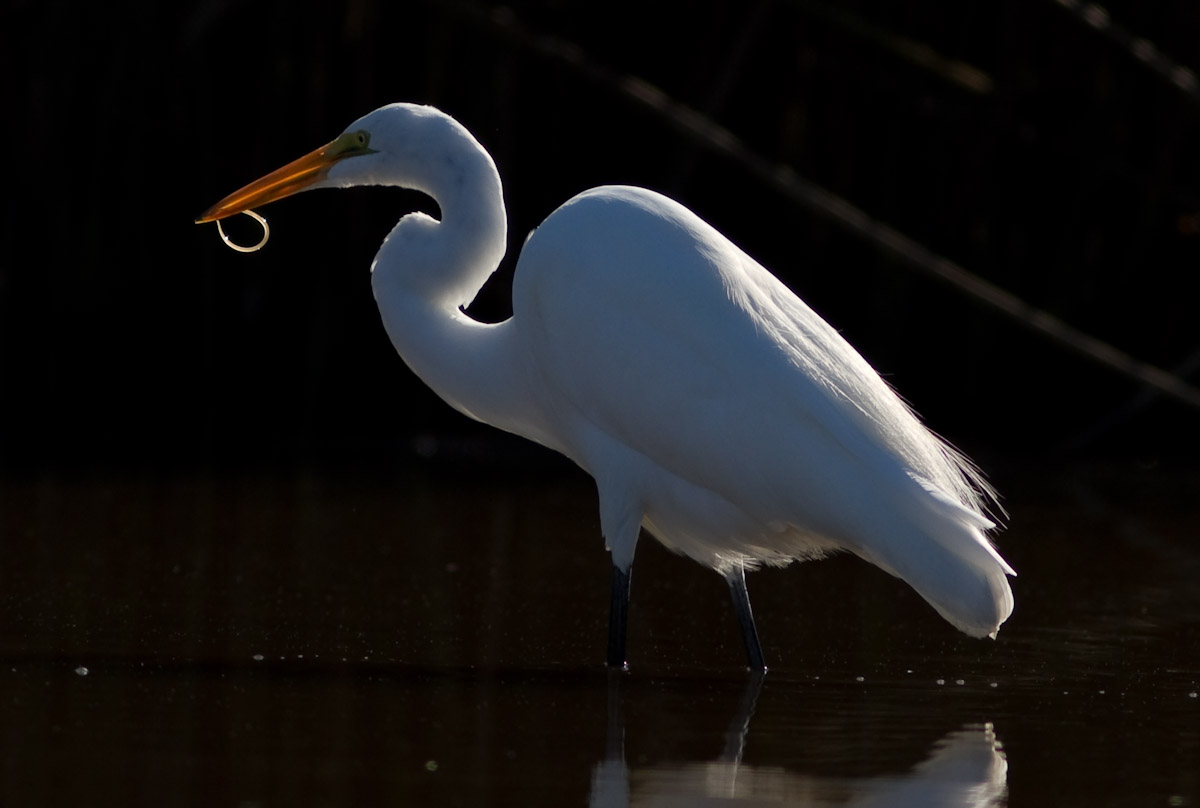There are two main components of the Understanding Wetlands class. The first focuses on fresh water systems; and the second focuses on the estuarine habitat of Armand Bayou. All classes will investigate the flora and fauna of ABNC and students will be required to participate in outdoor activities, such as seining, water testing, hiking, dip netting, and comparative studies.
Grade 5th - college
Group Minimum 10
Duration 3.5 Hours Fee $25.00/participant (children and adults)
Objectives
Students will:
Use indicator species to infer the water quality of wetlands.
Use observations and scientific measurements to judge water quality.
Observe how plant communities work as a buffer to decrease the effects of pollution.
Observe how pollution affects water quality in estuarine and freshwater ecosystems.
Vocabulary
Abiotic - non-living or physical components such as light, temperature, water, rocks, etc.
Bayou - a small, slow-moving body of water that may flow in both directions
Brackish water - a mixture of salt and fresh water
Diversity - variety of species in a given area
Ecosystem - An ecosystem is a complex, dynamic system that functions as a whole. An ecosystem is a natural unit and its size can be as small as a drop of water or as large as the Earth. Ecosystems consist of the interactions between organisms and between organisms and physical components, in which materials are exchanged following closed paths.
Salinity - salt content of water
Turbidity - measure of the clarity of water; how much turbulence or activity (tides, wind, etc.)
Biotic - living things
Competition - Two or more organisms simultaneous demand for limited resources, e.g. nutrients, water, light, space, etc.
Dichotomous Key - a key for identifying organisms based on choices between two alternating characteristics
Erosion - process material is worn away by wind and water
Indicator Species - indicates the presence of an environmental condition
Tolerance - organism ability to live in poor water conditions - low oxygen levels
Water quality - term to describe the chemical, biological, and physical characteristics of water
Watershed - a complex system of components that affect water bodies in a drainage basin. Climate, rainfall, geology, geography, and human activities are some of the factors that interact with water within a given drainage system.
Weathering - a chemical or mechanical process that breaks down an exposed object
Programs are adjusted to be age appropriate. All programs address the Science TEKS goal of engaging students in hands-on investigations of the natural world.
For specific, grade-level TEKS that may be included in our programs, see our Science TEKS chart below.
Pre and Post Trip Materials (PDF Format)





